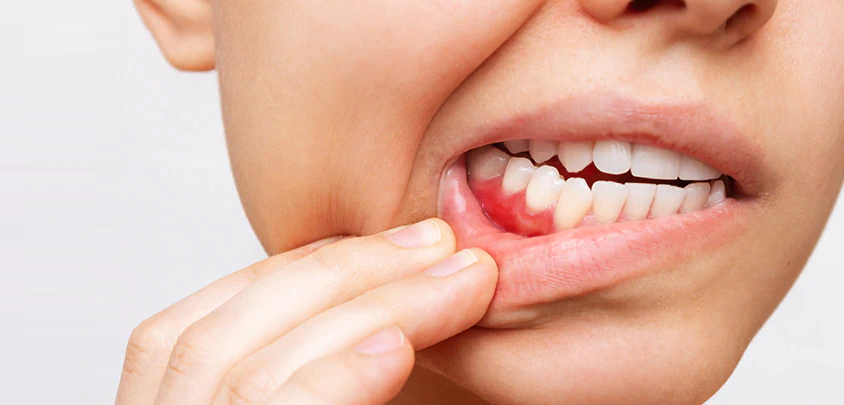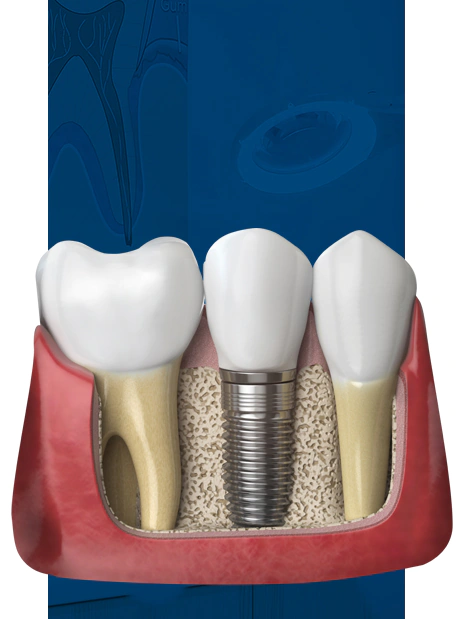What Is Gum Disease?
It is the condition of acute or chronic inflammation of the gum and/or bone tissues of the mouth. There are two types basic types: Gingivitis and Periodontal Disease

What Is Gingivitis?
Gingivitis is inflammation of the gums and is caused by higher concentrations of bacteria and food debris at and below the gum line. Many people develop gingivitis throughout different times of their life. It can occur when we become lax with our oral health — we do not brush properly or long enough, especially at the gum line, or we do not floss on a regular basis. Red, swollen and bleeding gums can be early signs of deteriorating dental health that many people ignore.
Gingivitis usually appears during the beginning stages of periodontal disease and often goes unnoticed—unless it’s identified by a dental professional. Untreated gingivitis can lead to periodontitis, which breaks down the bones and tissues that support the teeth.


What Is Periodontal Disease
/Periodontitis?
Periodontal disease is an infection of the bone that surround and support your teeth. It is caused by a bacterial growth from excess plaque and tartar build up. If left untreated, periodontal disease ultimately destroys the tissues and the bone that supports teeth. When this occurs, patients teeth can become loose and ultimately may need to be removed.
While poor oral hygiene and excessive plaque and tartar are the primary causes of gum disease, other contributing factors include tobacco use, clenching or grinding teeth, diabetes, and genetics.
Gum Disease Treatments
Gingivitis: is treated by a thorough dental cleaning (prophylaxis) followed by dental education to ensure proper brushing and flossing is completed at home. With proper home care, gingivitis can resolve quickly.
01
Periodontal Disease Treatment
Periodontal Disease: treatment of periodontal disease depends on the type and severity of condition
If diagnosed with Early periodontal disease, the first step is a thorough deep cleaning (scaling and root planning) to remove plaque and tartar that is on the root surface, usually below the gum. Once a deep cleaning is completed, patients may be required to come for more frequent cleanings to monitor their progress. Again, home care is ultimately the most important factor to maintain stable oral health.
01
Advanced periodontal disease may require a consultation with an American board certified periodontist (gum specialist). A periodontist may suggest treatments like surgery or grafting procedures to stop the disease from spreading. Additional steps the specialist may utilize are prescription antibiotics and oral mouth rinses to help kill the bacteria causing the condition.
02
Can Periodontal Disease
Affect More Than Just Your Natural Teeth?
Dental care is equally important for both our natural teeth and dental implants. Dental implants are subject to a gum disease called peri implant disease. This disease is caused by the same bacteria that damage the gum and bone tissue around a natural tooth. This can occur when periodontal care is neglected. It is important to remember that all teeth in your smile are equally important. Consistent brushing and flossing is key to maintaining a healthy mouth and preventing dental issues.


Contact Sodini Dental in Skokie, IL
If you suspect you have Gingivitis or Periodontal disease, contact our dental practice today! The sooner you begin treatment, the better.
